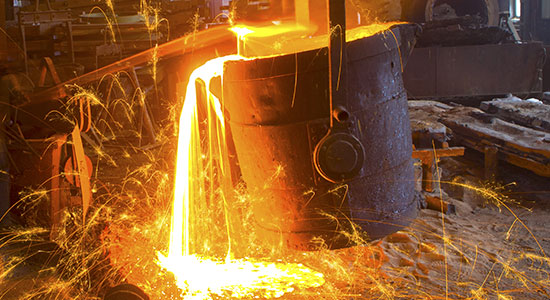Listening to the media elite or to Wall Street’s free-trade cheerleaders, one gets the impression that the sky must be falling. Pundits have wasted little time in deriding President Trump’s recent decision to protect national security by imposing tariffs on imports of steel and aluminum.
Op-ed originally appears on The Hill March 22, 2018
They warn of frightful consequences, and of “collateral damage” to America’s standing in the world. But here’s a funny irony amid all the doom and gloom talk: The tariffs will have essentially zero negative impact on the U.S. economy.
If there is any net job loss at all, it will be so minuscule as to immediately be absorbed by the current run of strong national job growth.
It’s only been a few weeks since President Trump adopted the recommendations of the Department of Commerce and announced his intention to impose a 25-percent tariff on steel imports and a 10-percent tariff on aluminum imports.
It was an understandable move, since steel and aluminum have been hurting in recent years thanks to a wave of subsidized imports from a host of trading partners. But steel and aluminum help to form the backbone of America’s industrial economy.
The president clearly recognized the need to preserve a strong civilian manufacturing base in order to meet the ongoing needs of the nation’s armed forces.
After hearing all of the surprisingly uninformed speculation about the president’s decision, the Coalition for a Prosperous America (CPA) decided to conduct economic modeling on the impact of the tariffs. The results bear out the negligible impact of the tariffs on a diverse, $19-trillion national economy.
Essentially, CPA found that, under the tariffs, U.S. GDP would decline by only a microscopic 0.008 percent. Significantly, the study also found a gain of 19,000 jobs in the steel and aluminum sectors, which would offset any job losses in related industries.
There’s a key point here: Manufacturing matters. The president’s tariffs will add roughly 19,000 good-paying, middle-class manufacturing jobs to the U.S. economy. That’s a very helpful number to remember when one considers that in the past decade, the United States has primarily been adding low-wage, service-sector jobs.
But the growth of such retail work in shopping malls and fast food joints has done little to strengthen the nation’s middle class.
To be clear, the CPA study does suggest that, in the near-term, the tariffs could result in a net loss of 400 jobs. But with the economy currently growing by 250,000 jobs per month, such a small decrease would literally be swallowed up in 16 minutes of job growth.
Overall, though, the tariffs will mean a tilt toward higher-wage job creation, which should be the goal of any coordinated national policy.
One reason for the strong, expected job growth in manufacturing is that domestic prices for steel and aluminum will rise far less than the new tariff rates. There’s already spare capacity in America’s steel and aluminum sectors, and both industries are pared to the bone and lean — fully ready to meet any increased demand.
CPA’s research forecasts steel prices rising by only 6.29 percent, with aluminum prices increasing just 2.5 percent. This will help to limit the impact of the tariffs on other sectors of the U.S. economy.
Some have tried to paint the tariffs as costing jobs. But the U.S. is currently enjoying record-low unemployment of 4.1 percent. Estimates that do not recognize this recent upswing will naturally lead to faulty assessments of the economic impact of the tariffs.
But there’s also the unique, value-added strength of manufacturing itself. America’s steel industry enjoys a particularly robust “employment multiplier” effect, with each steel industry job supporting seven jobs in the surrounding economy.
In studying the likely impact of the tariffs, CPA finds the add-on benefit of the tariffs translating into 6,021 new jobs in supporting industries.
It’s important to take a rational, long-term view of the benefits of such tariff action. Many have been quick to knock the imposition of the tariffs. But they are lawful under global trade rules designed to address trade cheating and to ensure national security.
Tariffs and trade enforcement should be expanded to cover possible harm to downstream industries and to spur a more comprehensive plan that includes a national competitiveness strategy. Such an approach could create good, middle-class jobs and preserve crucial sectors of America’s manufacturing economy.
Protecting today’s industries should be a logical prerequisite for ensuring a vibrant economy and good jobs in the future.
Michael Stumo is CEO of the Coalition for a Prosperous America, an organization that advocates on behalf of U.S. manufacturing, agriculture and labor.













